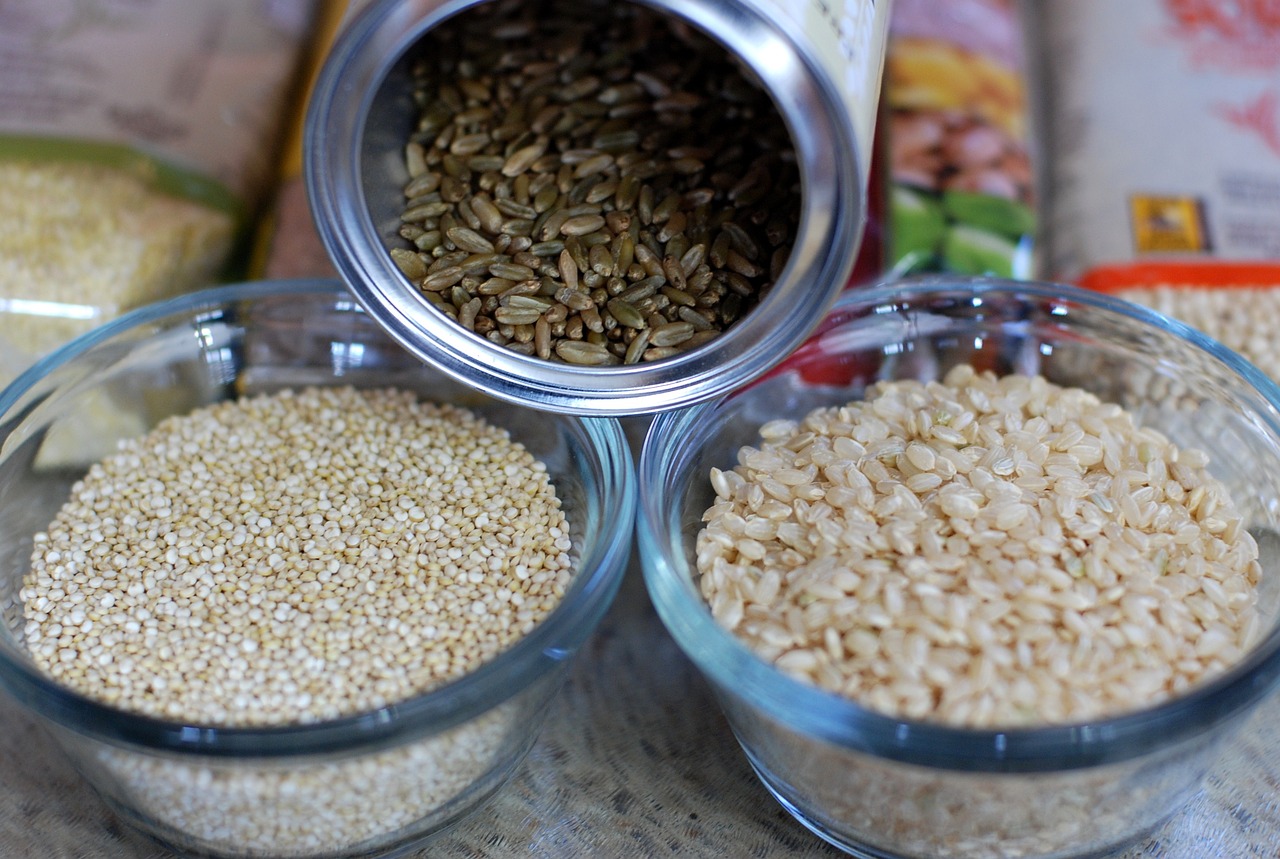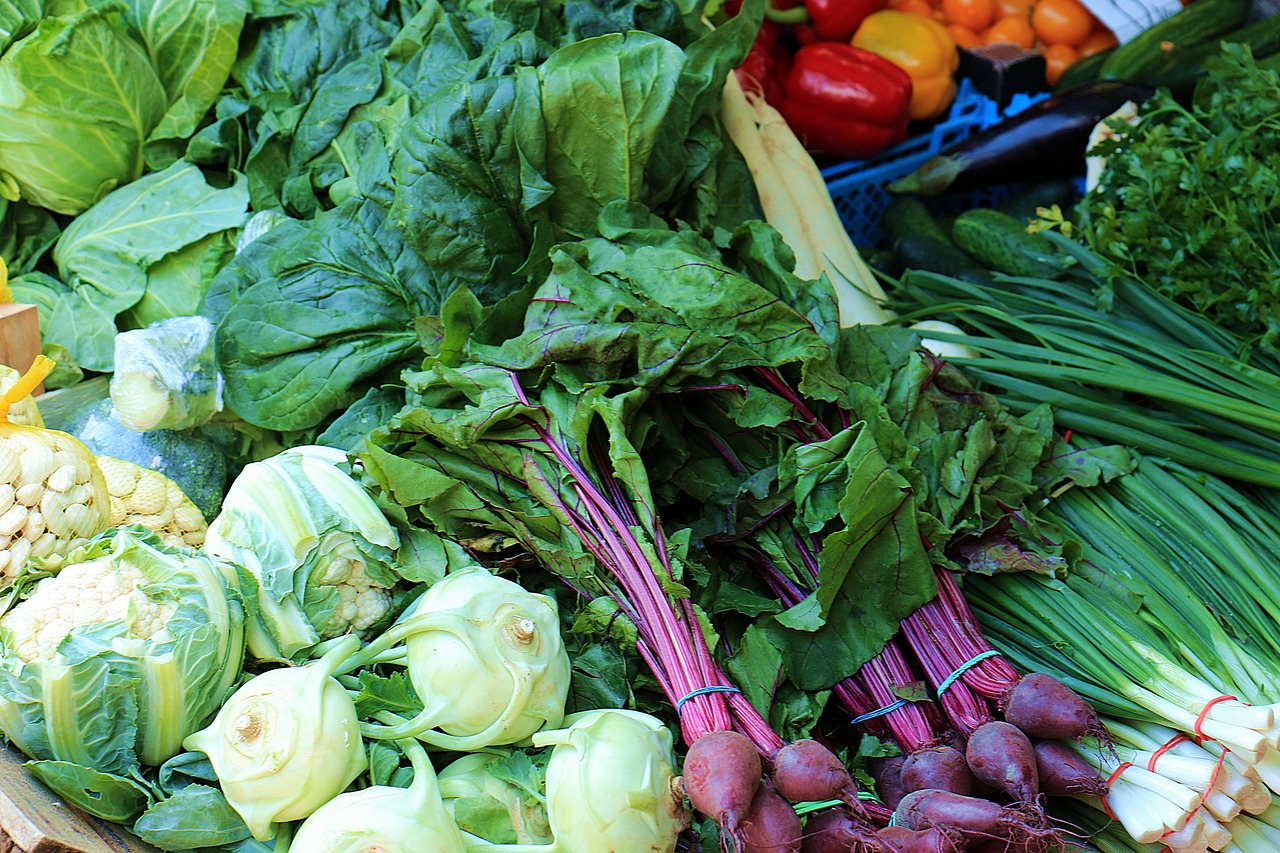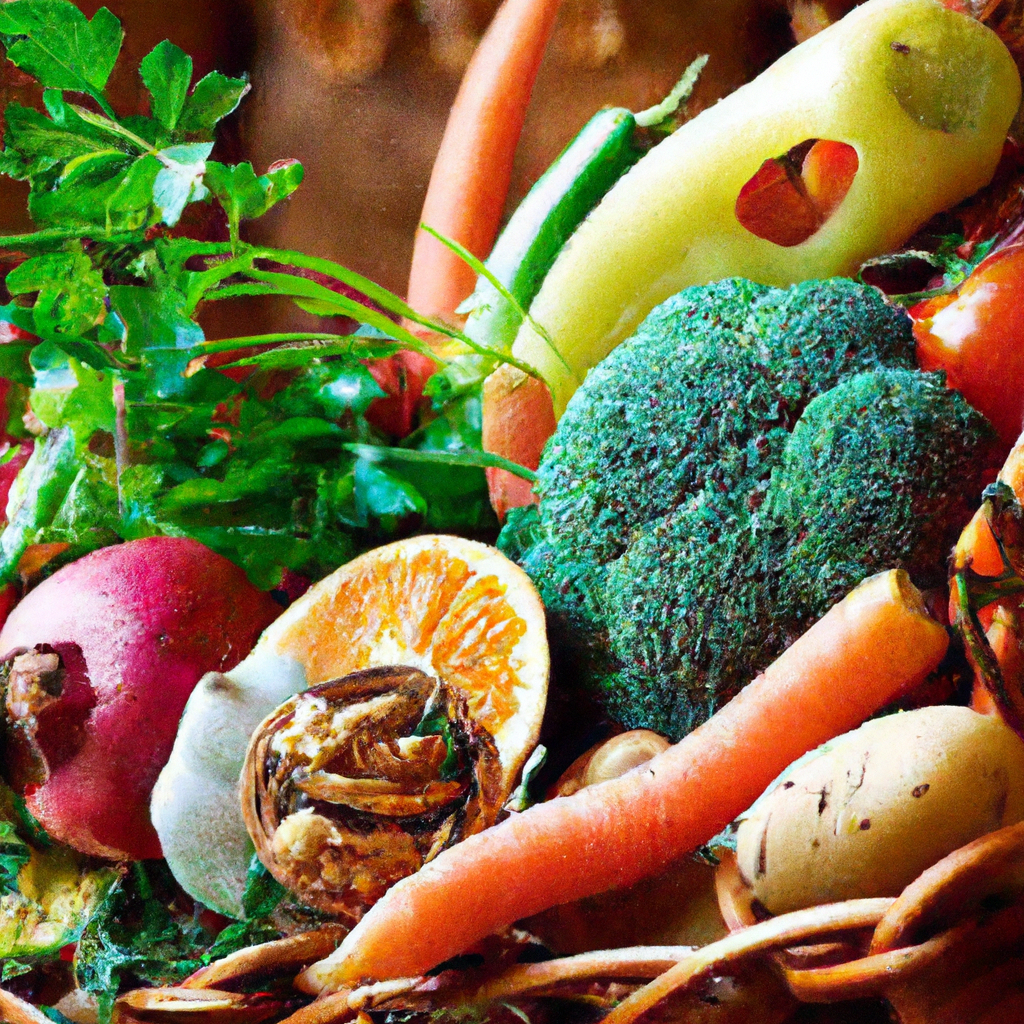
Are you wondering if it’s crucial to include an adequate amount of fiber in your diet? Well, you’re in the right place! In today’s fast-paced world of convenience and processed foods, it’s easy to neglect the importance of fiber in our daily diet. But fret no more! This article will shed light on why getting enough fiber is not only important but also beneficial for your overall health. So sit back, relax, and let’s unravel the wonders of fiber together!
What is fiber?
Definition of fiber
Fiber, also known as dietary fiber or roughage, is a type of carbohydrate that cannot be digested by the human body. It passes through the digestive system relatively intact and plays a crucial role in maintaining overall health. Unlike other carbohydrates, fiber does not provide calories or energy, but it offers numerous health benefits.
Types of fiber
There are two main types of fiber: soluble fiber and insoluble fiber. Soluble fiber dissolves in water and forms a gel-like substance in the digestive tract. It can help lower cholesterol levels and regulate blood sugar levels. Sources of soluble fiber include oats, barley, fruits, and legumes. On the other hand, insoluble fiber does not dissolve in water and adds bulk to the stool, promoting regular bowel movements. Whole grains, vegetables, and nuts are good sources of insoluble fiber.
Benefits of getting enough fiber
Digestive health
One of the primary benefits of consuming an adequate amount of fiber is improved digestive health. Fiber promotes regular bowel movements, prevents constipation, and maintains bowel function. It adds bulk to the stool, reducing the risk of diverticular disease and hemorrhoids. Additionally, fiber provides nourishment for beneficial gut bacteria, supporting a healthy gut microbiota.
Weight management
Fiber also plays a crucial role in weight management. High-fiber foods are often lower in calories and provide a feeling of fullness, which can help curb overeating. Additionally, the chewing process required to break down high-fiber foods requires more time, slowing down the eating process and allowing the brain to register feelings of satiety. By increasing dietary fiber intake, you can effectively manage your weight and avoid unnecessary weight gain.
Heart health
Consuming enough fiber is beneficial for maintaining a healthy heart. Soluble fiber binds to cholesterol, preventing its absorption into the bloodstream. As a result, high-fiber diets can help lower LDL (bad) cholesterol levels, reducing the risk of heart disease. Including fiber-rich foods such as oats, beans, and flaxseeds in your diet can contribute to a healthier cardiovascular system.
Blood sugar control
Fiber also plays a vital role in regulating blood sugar levels. Soluble fiber slows down the absorption of sugar, preventing rapid spikes in blood glucose levels. This can be particularly beneficial for individuals with diabetes or those at risk of developing the condition. Including fiber-rich foods in your meals can help maintain balanced blood sugar levels and promote overall metabolic health.
Prevention of certain diseases
Adequate fiber intake has been associated with a reduced risk of certain diseases. Research suggests that diets high in fiber can lower the risk of developing conditions such as colorectal cancer, type 2 diabetes, and heart disease. The fiber found in plant-based foods contains various compounds that have protective effects on the body, including antioxidants and phytochemicals. By including a variety of fiber-rich foods in your diet, you can help safeguard your long-term health.

Recommended daily intake of fiber
General guidelines
The recommended daily intake of fiber varies depending on several factors, including age, sex, and overall health. However, as a general guideline, adults should aim to consume between 25 to 38 grams of fiber per day. It is important to note that this recommendation may vary for individuals with specific health conditions or dietary needs.
Specific recommendations for different age groups
- Children aged 1-3 years: 19 grams of fiber per day
- Children aged 4-8 years: 25 grams of fiber per day
- Girls aged 9-13 years: 26 grams of fiber per day
- Boys aged 9-13 years: 31 grams of fiber per day
- Girls aged 14-18 years: 26 grams of fiber per day
- Boys aged 14-18 years: 38 grams of fiber per day
- Adult women (18 years and older): 25 grams of fiber per day
- Adult men (18 years and older): 38 grams of fiber per day
It is important to gradually increase fiber intake and ensure a balanced diet to avoid any digestive discomfort or nutrient imbalances.
Good sources of fiber
Fruits and vegetables
Fruits and vegetables are excellent sources of dietary fiber. They are rich in vitamins, minerals, and antioxidants, making them a vital part of a healthy diet. Some fiber-rich fruits include raspberries, apples, and bananas. Leafy green vegetables, broccoli, and carrots are also packed with fiber and offer numerous health benefits.
Whole grains
Whole grains, such as whole wheat, oats, and brown rice, are another great source of dietary fiber. These grains retain all parts of the grain, including the bran, germ, and endosperm, providing a higher fiber content compared to refined grains. Incorporating whole grain bread, pasta, and cereals into your meals can significantly boost your fiber intake.
Legumes
Legumes, including beans, lentils, and chickpeas, are not only rich in fiber but also provide a good source of plant-based protein. These versatile legumes can be added to various dishes, such as soups, salads, and stews, to increase their fiber content and overall nutritional value.
Nuts and seeds
Nuts and seeds, such as almonds, chia seeds, and flaxseeds, are nutrient-dense and contain a significant amount of fiber. They can be enjoyed as a snack or added to meals, smoothies, or baked goods to increase your daily fiber intake. However, it’s important to consume them in moderation, as they are also calorie-dense.

Effects of insufficient fiber intake
Constipation
Insufficient fiber intake can lead to constipation, a condition characterized by infrequent bowel movements and difficulties in passing stool. Without enough fiber in your diet, the stool becomes harder and more difficult to eliminate. This can cause discomfort, bloating, and feelings of incomplete bowel movements. Incorporating fiber-rich foods into your diet can help alleviate and prevent constipation.
Weight gain
Inadequate fiber intake has been linked to weight gain and an increased risk of obesity. Without enough fiber, you may not feel as satisfied after meals, leading to excessive snacking and overeating. Additionally, low-fiber diets tend to be higher in unhealthy, processed foods, which can contribute to weight gain. By ensuring you consume enough fiber, you can help maintain a healthy weight and reduce the risk of obesity-related complications.
Increased risk of diseases
A lack of fiber in your diet can increase the risk of developing certain diseases. Insufficient fiber intake has been associated with an increased risk of conditions such as colorectal cancer, heart disease, and diabetes. Fiber-rich foods contain beneficial compounds that support overall health and reduce the risk of chronic diseases. It is crucial to prioritize adequate fiber intake to promote optimal health and reduce the likelihood of developing these diseases.
Ways to increase fiber intake
Gradual increase in fiber consumption
To avoid digestive discomfort, it is recommended to gradually increase your fiber intake. Sudden significant changes to your fiber intake can cause bloating, gas, and gastrointestinal distress. Begin by incorporating small amounts of high-fiber foods into your meals and gradually increase the portion sizes. This allows your digestive system to adjust and avoids any unpleasant side effects.
Read food labels
When grocery shopping, reading food labels can help identify foods that are high in fiber. Look for products that contain whole grains, fruits, vegetables, and legumes. The fiber content is usually listed under the “Total Carbohydrate” section on the label. Opt for products that have higher fiber content per serving to help meet your daily fiber goals.
Experiment with new foods
Exploring new foods and recipes can introduce you to a wide range of high-fiber options. Try incorporating different fruits, vegetables, and whole grains into your diet. Experiment with recipes that feature legumes and incorporate nuts and seeds for added fiber. By diversifying your food choices, you can increase your fiber intake while also enjoying a variety of flavors and textures.

Potential side effects of high fiber intake
Digestive discomfort
While increasing fiber intake is generally beneficial, consuming excessive amounts of fiber can cause digestive discomfort. Some individuals may experience bloating, gas, and abdominal cramps as their bodies adjust to the higher fiber load. This is particularly true if there is a sudden significant increase in fiber intake. It is important to listen to your body and adjust your fiber intake accordingly if you experience any discomfort.
Nutrient absorption
High fiber intake may affect the absorption of certain nutrients. Fiber can bind to minerals such as calcium, zinc, and iron, reducing their bioavailability in the body. Therefore, it is essential to consume a balanced diet that includes a variety of nutrient-rich foods to ensure adequate nutrient absorption, even with increased fiber intake.
Fluid balance
Consuming a high-fiber diet without adequate fluid intake can result in dehydration and adversely affect fluid balance in the body. Fiber absorbs water, and if there is not enough fluid to support this process, it can lead to constipation and discomfort. It is important to stay hydrated by drinking enough water throughout the day, especially if you have increased your fiber intake.
Fiber and gut microbiota
Role of fiber in gut health
Fiber plays a crucial role in maintaining a healthy gut microbiota. It acts as a prebiotic, providing nourishment to beneficial bacteria in the gut. These bacteria ferment fiber, producing short-chain fatty acids (SCFAs), which have numerous health benefits. SCFAs provide energy to the cells lining the colon, help maintain a healthy pH balance, regulate inflammation, and support overall gut health.
Impact on gut bacteria
Consuming enough fiber is vital for promoting a diverse and thriving gut microbiota. A diverse microbiota is associated with better overall health, a stronger immune system, and a reduced risk of certain diseases. Fiber-rich foods provide the necessary nutrients for the growth and maintenance of beneficial gut bacteria. By incorporating a variety of high-fiber foods into your diet, you can positively impact your gut microbiota and support optimal gut health.

Fiber supplements: Do they work?
Types of fiber supplements
Fiber supplements come in different forms, including powders, capsules, and chewable tablets. Common types of fiber supplements include psyllium husk, methylcellulose, and inulin. These supplements are typically derived from plant sources and provide a concentrated dose of fiber.
Effectiveness and considerations
While fiber supplements can be useful in certain situations, it is generally recommended to obtain fiber from natural food sources. Whole foods provide a wide range of nutrients, in addition to fiber, that contribute to overall health. Fiber supplements may not offer the same benefits as consuming fiber through a balanced diet. It is important to consult with a healthcare professional before starting any fiber supplement to ensure it aligns with your specific needs and health considerations.
Conclusion
Ensuring you consume enough fiber in your diet is essential for maintaining optimal health and well-being. Fiber offers numerous benefits, including improved digestive health, weight management, heart health, blood sugar control, and reduced risk of certain diseases. By including a variety of fiber-rich foods, such as fruits, vegetables, whole grains, legumes, nuts, and seeds, you can easily meet your daily fiber requirements. Remember to gradually increase fiber intake, read food labels, and experiment with new foods to diversify your diet. Aim for a well-balanced approach and consult with a healthcare professional if considering fiber supplements. Prioritizing adequate fiber intake is a simple yet powerful way to support your overall health and longevity.














Leave a Reply